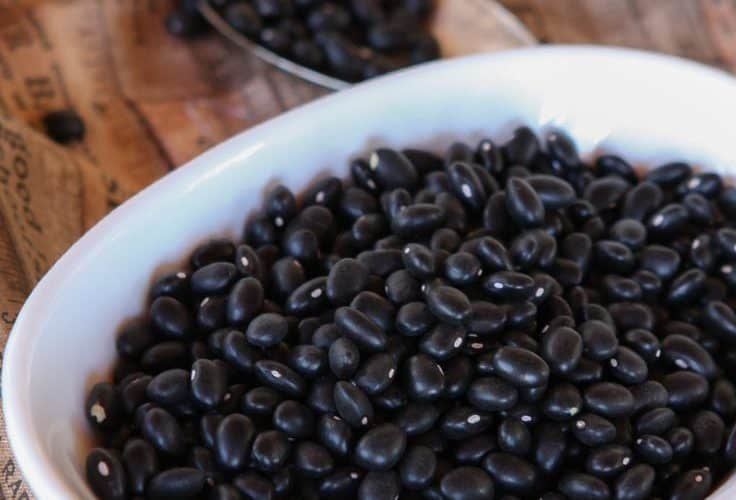Preparing dried black beans for cooking
When you get your beans home from the store, the first thing you will want to do is clean and sort them. Shriveled and knotty beans will not cook up properly, so it is best to discard these. Keep in mind that beans, like all produce, are grown outside and may have dirt, clay, or pesticide residues clinging to them. Wash them thoroughly several times, changing the water often. For a final measure, cover the beans with water and let them sit for a few minutes, removing whatever floats to the surface.
Once you have cleaned and sorted your dried black beans, they will require a soaking period. Cover your beans with water and leave them to sit for about 4 hours, or even overnight if time allows. You need not do anything else to them during this period, but it is an important step toward getting the desired final result. There is a quick soaking method that allows for boiling the beans up to 3 minutes and then covering them for an hour or two, but this method is likely to reduce the nutritional value. It is better, when possible, to give them the time they need to rehydrate naturally.
Soaking overnight is by far the best method. The quick soak method often causes the beans to break apart prematurely. If you are going to puree the beans, this may be fine, but in salads you’ll want your beans to remain whole so plan accordingly. Save any salts or seasonings for after the beans have completely cooked or very near the end time. Adding acidic ingredients too soon can cause your black beans to become tough.
Cooking your newly rehydrated dried black beans
If you are diligent in properly preparing your beans, the actual process of cooking them is exceedingly simple. Drain off the water you used to soak the beans and add cold water back to them. Use a ratio of 1:3, so if you have 2 cups of beans, use 6 cups of water. Bring the beans to a boil and then reduce them down to a very slow simmer for 2 hours. Now your black beans are ready to use in any way you see fit.
Things you can do with cooked dried black beans
Of course, you can always just season your beans and eat them as is, but there are many other interesting things that can be done. Black bean recipes range from soups to salads and more. Using black beans in dishes you already prepare is a great way to add some nutrition and protein to your diet inexpensively and without meat. Visit Recipe Zarr: Black Beans for over 2,000 ways to use black beans in your meals.
As good as black beans are for you, some people may experience intestinal upset in the form of gas. Take this into consideration when preparing your beans and add herbal seasonings such as summer savory to help reduce this effect. Even with this mild side effect, black beans are a wonderful addition to your diet, and their benefits are quite possibly the reason they have been used for over 7,000 years.
<>







